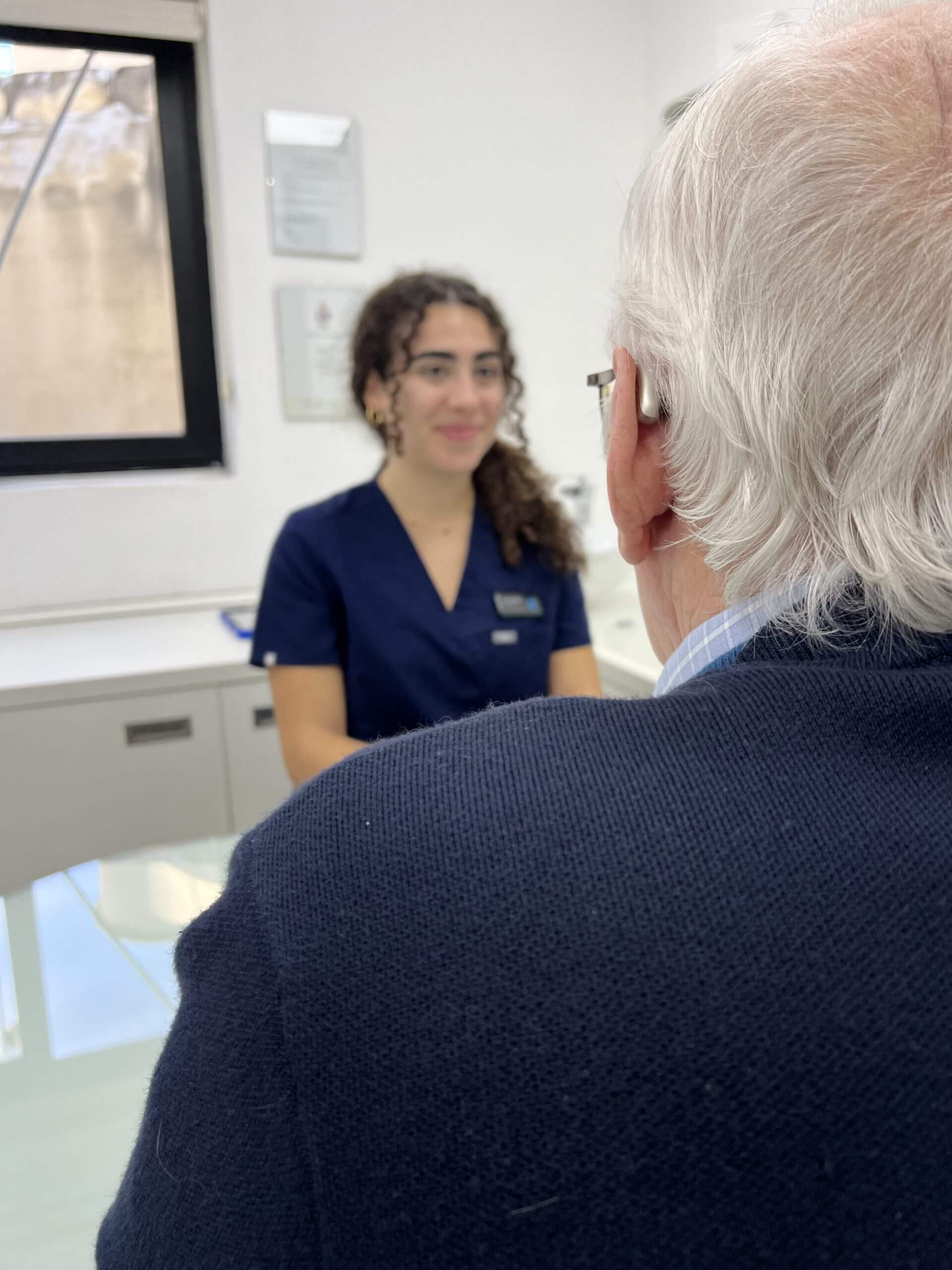
How to address your hearing loss
On average, it takes a person around 10 years to finally accept a hearing loss. That is not to say

What role does the brain play in hearing?
Accepting you have a hearing loss is not an easy thing to do. It can be upsetting and the thought of hearing aids is a huge adjustment. We think if you understand how your ears and your hearing work, it’s easier to accept the thought of hearing loss.
Sound creates vibrations in the air and these vibrations are picked up by the eardrum. The eardrum then vibrates which causes the tiny bones inside the middle ear to vibrate; this transmits the vibrations through the middle ear to the inner ear. This in turn causes the fluid inside the inner ear to move. When this fluid moves, it stimulates the nerve cells inside this part of the ear. The nerve cells then send impulses to the brain along the hearing nerve. The brain interprets these impulses and we finally hear the sound. Complex isn’t it?!
If there is any damage to any part of the hearing process, the ability to hear may be affected. The important thing to understand is that the term hearing loss covers a huge spectrum. It can range from being very mild to total deafness. There are two distinctive types of hearing loss and it is important to distinguish which you are suffering from so that the correct treatment is prescribed. As you can see from our video below, it’s so important to go and seek treatment for hearing loss sooner rather than later.
This kind of hearing loss occurs in the outer or middle ear when sound cannot be transmitted into your inner ear because of a blockage. The symptoms of this type of hearing loss will be muffled hearing and hearing sounds a little quieter. Conductive hearing can be temporary or permanent, it depends on what is causing the sound to be blocked from the inner ear. It can be treated medically or surgically, but most often with hearing aids.
A few of the most common causes of conductive hearing loss are:
This type of hearing aid is caused when there is a problem with the inner ear. When the hair cells in the inner ear are damaged or not functioning properly, your hearing will be affected. The symptoms of this type of hearing loss are a difficulty to distinguish different speech signals, a reduced perception of loudness and a reduced sensitivity to soft sounds. It is rare that this form of hearing loss can be treated medically or with surgery, but can be helped with hearing aids. Sensorineural hearing loss is permanent.
A few of the most common causes of sensorineural hearing loss are:
Aging – this tends to develop at the age of approximately 60 and upwards. The first signs are often problems in understanding speech and struggling when there is a lot of background noise.
Noise exposure – loud noise exposure can lead to damage in the inner ear. Noise induced hearing loss can happen from a single exposure to very loud noise or over a long period of time, for example, working in a noisy environment.
Genetic conditions – this can affect infants from birth or even develop later in life where there is a mutated gene.
Congenital and birth-related hearing loss – there are lots of things that can cause sensorineural hearing loss in newborns such as complications during birth, premature birth, injections during pregnancy and hereditary predispositions.
Drugs and medication – unfortunately, sensorineural hearing loss can be a side effect of certain medications and cancer treatment.
Sometimes, people do have a combination of both conductive and sensorineural hearing loss and we call this mixed hearing loss.
Our advice is always to get your hearing tested regularly. If you need any advice, or think you need to get your hearing checked, please don’t hesitate to get in touch with our friendly customer service team.
[html_block id=”3745″]

On average, it takes a person around 10 years to finally accept a hearing loss. That is not to say

Living with a hearing loss does not just have to be a part of getting older. It can be treated

At the very end of 2024, Phonak released their brand new Infinio hearing aid technology. At the end of 2025,